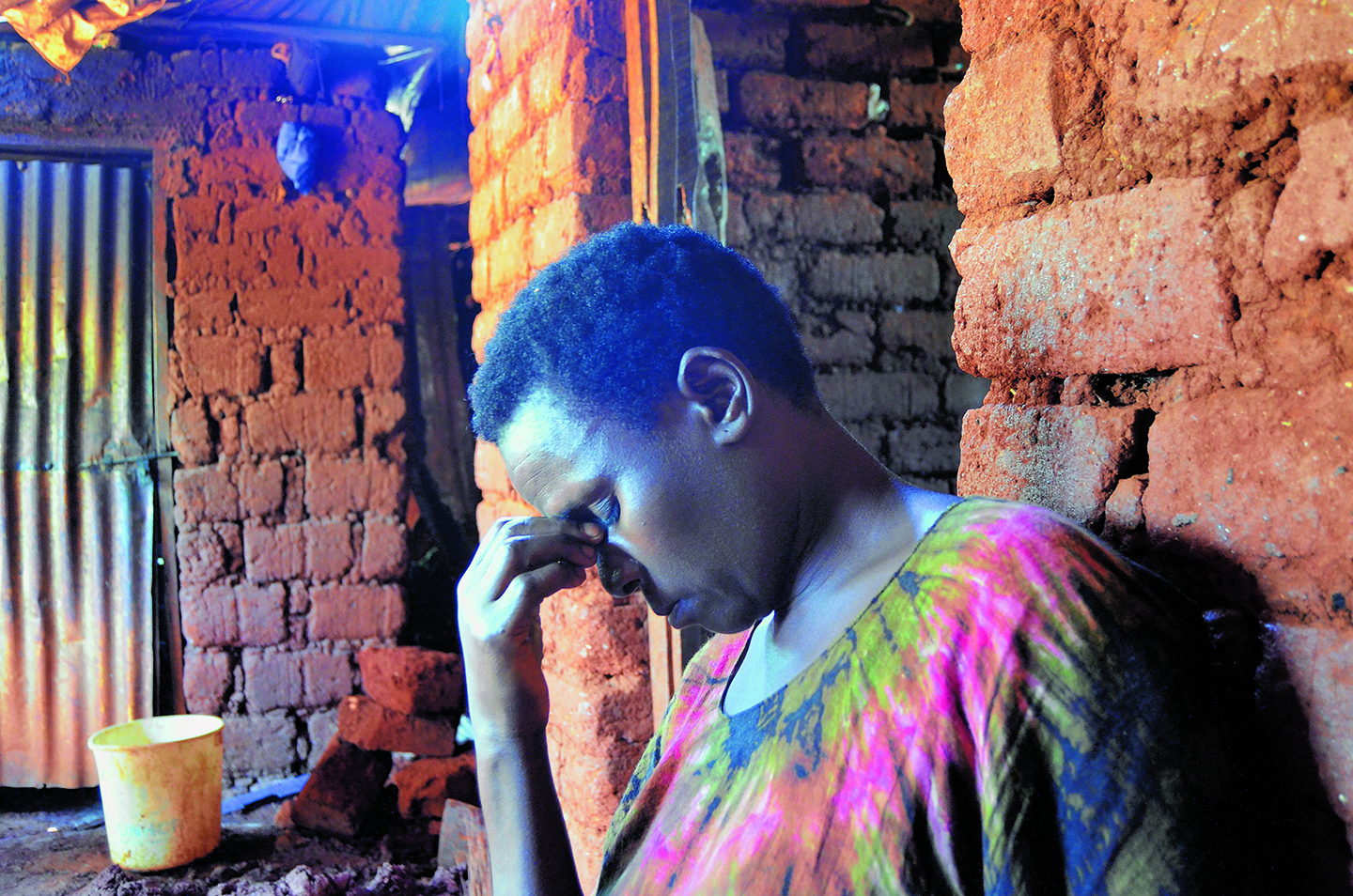Newborns abandoned on streets while tourism booms in Karatu

Warra Elisamia Nnko started Shalom Orphanage in 2004. It had only two children, but the number has increased 68.
What you need to know:
Karatu district executive director Moses Mabula says some drivers accompanying tourists spend a night in the town and befriend local girls, whom most of the time end up becoming pregnant.
Karatu. Situated on a plateau between Ngorongoro Crater and Lake Manyara National Park, Karatu town is well positioned to attract tourists.
A number of visitors heading for Serengeti National Park and Ngorongoro Crater pass through the town.
After climbing the Manyara Escarpment, the vegetation becomes more lush and green, finally entering into the highlands around Karatu.
The extinct volcano of Ol Deani has gentle slopes and it is a prominent feature of the landscape.
Although small, Karatu has at least 54 hotels and almost 90 guesthouses, says district executive director Moses Mabula.
He notes that tourism has a huge impact on families and young girls.
Mr Mabula says a number of drivers accompanying tourists usually spend a night in Karatu and end up befriending the local girls, whom most of the time end up becoming pregnant after brief casual encounters.
“With no means of supporting themselves, let alone their babies the teenage mothers end up abandoning their offspring immediately after birth. As a result the town has 12 orphanages, Mr Mabula says.
One of them is Shalom Orphanage where I was welcomed by a sign at the entrance that read as “Home of Peace” as two girls and a boy greeted me in unison “Shalom, Shalom, Shalom [Peace, peace, peace].”I responded too with “Shalom.”
They beckoned me inside and called their ‘mother.’
A bubbly woman emerged and introduced herself as Warra Elisamia Nnko. She is the centre’s director. Meanwhile I kept wondering if I was still in the right place.
Sensing my uncertainty Ms Nnko went on to explain that I was not the first person to feel that way.
“We raise our children on a foundation of peace and love. We teach them to be independent people no matter what circumstance they find themselves in. That is why they are cheerful,” she explained.
She leaves me with the children insisting that I first talk to them before I interview her.
Anna Damiani, (not her real name) 13, boldly states: “I am happy.”
She says she was told that she was brought at the centre at the age of three. Her younger sibling joined her at the orphanage later after their mother passed away.
Her tone changes while she narrates how a sibling who had been living with HIV and praises “mother” for doing what her relatives refused to do, and that was to take care of her sibling.
Anna, a Standard Seven pupil at Tumaini Junior Primary School says Good Samaritans started paying her school fees after they were touched by her life story.
Anna is serious about her studies and wants to become a civil engineer.
“Although I am still very young, I have come across a lot of problems. Our family went through a lot of hardships,” she stresses.
“We are helped by people who are not even close relatives of ours. They don’t know us but are by our problems. We are heavily indebted,” she says.
She notes that without the generosity of charitable people, most children at the centre would not be alive today.
Hawa Abdallah, (not her real name) 12, a Standard Three pupil at the same school, was brought to the orphanage after her mother died of Aids complications.
She says none of her relatives visit at the centre.
“When I listen to stories from my colleagues I am convinced there is a huge problem in society. Had it not been for this centre and others like this one, I wonder sometimes what our lives would have been like,” she contemplates.
Hawa is determined to study hard and become a nurse so as to serve others.
Ms Nnko tells me that it is common for newborns to be found abandoned on the streets of Karatu town.
She started the centre with only two children in 2004, and now it caters for 68 children aged between one week and 17 years of age.
With a mission to improve the lives of poor and disadvantaged children in Karatu and neighbouring communities Arusha and Moshi, Ms Nnko ensures they are shown mercy regardless of religion, tribe or ethnicity.
“Every child here has a different story. There are those who were picked up from the streets. Others who were abandoned at their homes by their mothers and were brought here by neighbours. A few are victioms of pysical and or sexual abuse.
Ms Nnko, a widow, depends heavily on donations. She does not regret receiving the children and taking care of them. She says she and her late husband, for long time used to take care of the needy including the elderly.
“When my husband was alive we used to assist many people. He was the bishop for Praise Pentecostal Church and Ministries,” she says.
According to Rev John Lugenge of the same church, matters are made worse by the Iraqw people who still believe in outdated traditions,
“If a girl becomes pregnant before marriage she is considered an outcast. Many flee to the bush and some die there. Others abandon their newborns, ” he says.
The district’s community development officer Elizabeth Herman says orphanages in Karatu cater for at least 266 children —150 of them are boys.
“These are last year’s figures from only nine centres. We did not reach other orphanages, especially those that were not properly registered.”
An official with the Karatu gender desk criticised society for doing nothing to stop the neglect of children.
Ngorongoro Conservation Area Authority community development officer Salustin Hallu says the authority and other stakeholders have been running public awareness programmes to sensitise communities on sexual and reproductive health and rights.
“We also assist orphanages financially. For instance, we have given Shalom Orphanage Sh5 million to enable it to take care of the children. We assist other centres as well,” he says.
Ms Nnko says society is sick and something should be done to heal it otherwise the situation will worsen.
She also says excessive drinking of illicit brews has been leading “to marital breakdown, affecting children as many women cannot afford to take care of them after their partners abandon families”.
She says many women in rural areas bear a lot of children and their husbands abandon families. “Most of them have limited knowledge on family planning. As a result, they bear many children whom they can’t support and this causes problems.”
Moreover, the rates of HIV infections are high because excessive drinking leads to unprotected sex.
Legal obligation
The Children Act No. 21 of 2009 places responsibilities on parents, guardians, society and the government to protect and safeguard children rights.
According to the law, one is supposed to take care of a child who is in distress. If he cannot do that he should at least report the incident to relevant authorities so that actions can be taken.
But this is not done effectively. That is why 10 per cent of children in Tanzania live in deplorable conditions. Half of them live in dangerous environments.
Most of such children are orphans whose parents have died of Aids.
According to children at Shalom Orphanage in Karatu, joint efforts are needed to address the problem. They note that avoiding doing so would be perilous for the nation.


